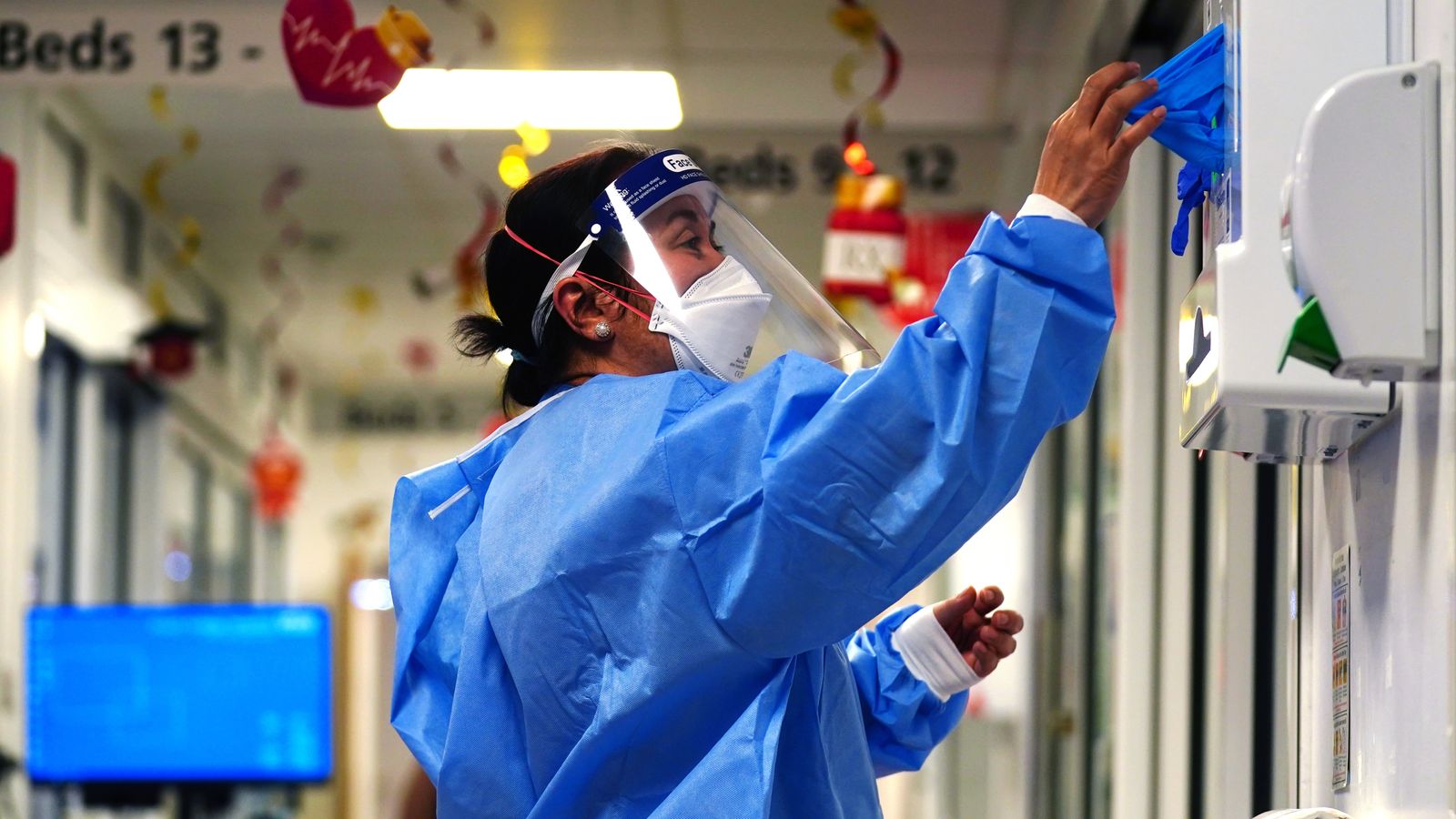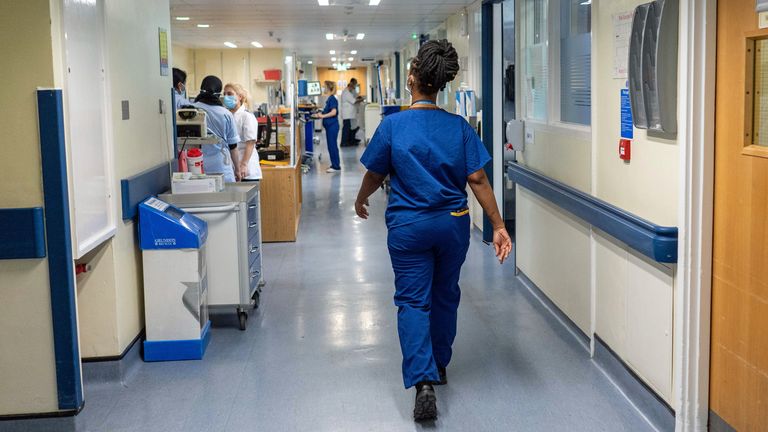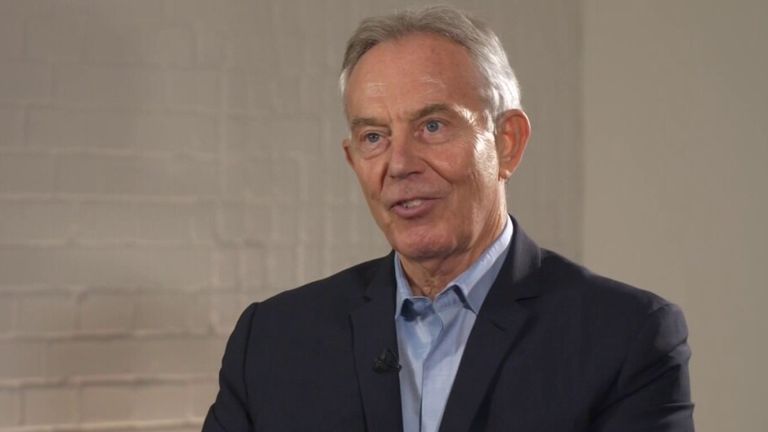The government is turning to the private sector in an attempt to cut NHS waiting lists.
Thirteen new community diagnostics centres (CDCs) will be opened across England to carry out an additional 742,000 scans, checks and tests per year.
Eight of the new facilities will be operated by the private sector – but despite this, all services will remain free to patients.
NHS waiting lists stood at 7.47 million at the end of May, the highest number since records began in 2007.
Labour condemns Greenpeace protest at PM’s home – politics latest
Mr Sunak made cutting NHS waiting lists one of his five priorities to the public in a speech he gave in January – but last month, he said industrial action in the health service had made his mission “more challenging”.
Analysis by Sky News carried out in May found that the number of people waiting more than a year for hospital treatment is 186 times higher than before the pandemic began.
At the end of February, 300,000 people in England had been waiting for more than a year since being referred by a consultant. Two years ago, in February 2020, that figure was below 2,000.
Junior doctors are currently preparing for another four-day strike beginning on 11 August, while consultants are set to walk out for 48 hours from 24 August in an ongoing dispute with the government over pay and working conditions.
Health Secretary Steve Barclay said: “We must use every available resource to deliver life-saving checks to ease pressure on the NHS.
“By making use of the available capacity in the independent sector, and enabling patients to access this diagnostic capacity free at the point of need, we can offer patients a wider choice of venues to receive treatment and in doing so diagnose major illnesses quicker and start treatments sooner.”
The development is likely to reignite the debate over private sector involvement in the NHS, a concept that is fiercely resisted by campaigners who fear any potential shift towards US-style private healthcare.
In an exclusive interview with Sky News last month, former prime minister Sir Tony Blair said the NHS was “not serving its purpose” and warned: “The truth is, you’re not going to have a lot more money to spend, but you do have to think how do we do things completely differently.”
He said there should be more private sector involvement in the NHS and that there should be “complete cooperation between the public and private sector”.
During his campaign to be Labour leader, Sir Keir Starmer pledged to introduce common ownership of Britain’s utilities – including rail, mail, energy and water – saying “public services should be in public hands”.
He also promised to “end outsourcing in our NHS, local government and justice system.”
However, in an interview with Sky News’s Sophy Ridge on Sunday programme in January, the Labour leader backtracked on that pledge, saying: “We’re not talking about privatising the NHS. The NHS has always used elements from the private sector, GPs are an example of that.
“Outsourcing of some issues and functions I don’t think has been very effective.”
And in its response to the new centres announced today, Labour said the government is currently not making enough use of private capacity – claiming that 331,000 patients waiting for NHS care could have been treated since January 2022.
Shadow health secretary Wes Streeting said: “The Conservatives are failing to make use of private sector capacity and patients are paying the price.
“No one should be waiting in pain while hospital beds that could be used lie empty. The next Labour government will use spare capacity in the private sector to get patients seen faster.”
Read more:
GPs given new powers to fast-track heart and respiratory checks
One in five adults in England will be living with major diseases by 2040, say researchers
The private centres announced today will operate in a similar way to those run by the NHS, but staff will be employed by private operators, which also own the buildings.
Sites in the South West – located in Redruth, Bristol, Torbay, Yeovil and Weston-super-Mare – will be operated by diagnostics company InHealth.
The others are located in Southend, Northampton and south Birmingham – and join the four already operating in Brighton, north Solihull, Oxford and Salford.
The new NHS-run sites are in Hornchurch, Skegness, Lincoln, Nottingham and Stoke-on-Trent.
The government vowed to open 160 CDCs by 2030. Currently, 114 are operating and they have carried out 4.6 million tests, checks and scans since July 2021.



